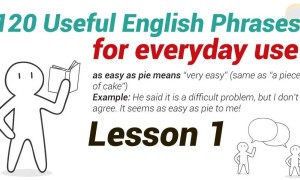导读:很多人在人生某个时刻都想要存钱买点什么,专家建议:收入的50%用在生活必需品上,20%存起来,剩下的30%用来购买你的“欲望”。

Whether saving for a first home or a new pair of shoes, everybody has budgeted for something at some point in their life - and knows the pitfalls of failing to stick to it.
不论是存钱买第一栋房子还是买一双新鞋,每个人在人生中某个时刻都会为某件东西作预算-而且每个人都知道难以坚持的陷阱在何处。
So what if there was a simple hack that ensured you always kept to your budget and saved exactly the correct amount of money every month?
假如有种简单的方式能够确保你坚持自己的预算,并且每月存下来足够的钱,结果会怎么样呢?
According to Career Girl Daily there is. The site claims that the 50-20-30 rule is one that can be applied to every budget and will help you gain control of your money.
据《每日职业女性》称,真有这样的方式。该网站声称50-20-30法则能够应用到每一个预算,并帮你掌控金钱。
So how does it work? As Hannah Lutterbach explains, 50 per cent of everything you earn each month should be spent on essentials.
那么这个法则是如何运作的?汉娜吕泰尔巴克解释说,你每月全部收入的50%应当花费在生活必需品上。
These ’needs’ include your rent, bills, food shop and travel cards (plus car insurance and petrol if you drive).
这些“需求”包括房租、账单、食品、乘车卡(如果你开车,还要加上汽车保险和油费)。
If you’re struggling to work out exactly which expenditures come under this section, it’s the ones you pay without fail every single month that are mostly unchanging.
如果你纠结于弄清楚究竟哪些支出是属于这一部分的,你就看那些你每个月几乎不变的固定支出。
The 20 part of the rule calls for you to put 20 per cent of every single month’s pay check into your savings pot.
20指的是你要把每月工资的20%存起来。
The money you save will be beneficial for your retirement contributions or to pay off debts you might have like college or car loans,’ explains Hannah, who recommends having a separate bank account for this segment of your money.
“你的储蓄将会对你的退休金有益,或者用它来支付你可能有的贷款,比如大学学费贷款或车贷。”汉娜解释道,并且她建议为这部分储蓄开通一个专有银行账户。
The third and final part of the rule is the 30 per cent part, which is dubbed the ’wants’ and can be spent on the fun things you want to do or things you want to buy like new clothes.
规则的第三部分也是最后一部分-30%,它被称作“欲望”,它可以花费在你想做的开心的事或者想买的东西,比如新衣服。
Hannah explains that as long as you’ve followed steps one and two, the third step allows you to have some fun with your money.
汉娜说,只要你遵循了规则一和二,第三个规则会允许你用这笔钱做点开心的事。
She concluded: ’It can be tempting to spend more than 30 per cent on your “wants” but try to honest and strict with yourself and don’t even start to cheat.’
她总结:“你可能非常想在你的"欲望"上花费超过30%的钱,但试着严格和诚实对待自己,不要试图欺骗自我。”
Discussing the technique, Jamie Smith-Thompson, managing director of Portafina (pensions and ISA advice specialists), said: ’Categorising your income like this is a great way to think about your money, and will also get you into the habit of paying yourself first, which is crucial for financial success. It’s similar to the thrift box system from years ago, so is a tried and tested method.
谈到技巧,Portafina(养老金和个人储蓄账户咨询专家)总经理杰米史密斯-汤普森说:“将你的收入按照像这样的方式分类能够让你思考你的金钱,使你养成自己为自己买单的良好习惯,而这点对于财务成功是至关重要的。它很像多年前的勤俭盒系统,是经过考验和测试的方法。”
There’s no doubt this would be particularly useful for people who don’t pay much attention to their money, and can start them on the road of improving their finances.
毫无疑问,这种方式明显能够帮助那些不太在意自己经济状况的人,使他们改善自己的经济状况。
With that said, it’s a false claim that these percentages apply to every budget. If you’ve got a mountain of debt and no savings, then spending more money than you save is not recommended.
话虽如此,但是认为这个比例适用于所有预算则是种错误的观念。如果你有堆积如山的债务并且毫无积蓄,那不建议你花的钱比存的钱多。
With debt, a good idea is to give yourself a deadline to pay it off by. From there, you can work out monthly payments to hit your target. This is more effective than thinking purely about percentages, and once the debt is cleared you can put the extra money into your savings every month.’
“对于债务,一个好的办法是给自己设置一个还清的期限。你可以通过期限来计算每个月需还的费用,以此来达成目标。这种方式比单纯考虑比例要有效得多,一旦你还清债务后,便可以将每月额外的钱存起来。”

Kris Brewster, Head of Products at Skipton Building Society, does, however, believe that when it comes to managing finances, everyone is different and there’s no such thing as a one size fits all approach. So, he says, it’s important to identify what’s realistic for you and your family.
然而,谈到财务管理,普顿建筑协会产品负责人克里斯布鲁斯特却认为每个人都不一样,因此没有所谓一刀切的方法。因此他觉得,认清自己和家人的现实才是最重要的。
Look at your finances and identify your disposable income. Make a list of your essentials, such as living and transport costs, then do the same for things like going out, shopping or leisure activities. Try to get into the habit of saving a proportion of your income regularly each week or month: it can often be worth putting goals or incentives in place to help you stay motivated in the longer term.
“查看自己的财务状况,确认可支配收入。列一个生活必需品清单,比如居住和交通费,同样对于出行、购物或休闲活动也如此操办。试着养成每周或每月存下来收入一定比例的钱:有时候不妨设置目标或激励来帮你长期保持动力。”
There are always times when you may need to be flexible with your finances – some recent research conducted by Skipton Building Society reveals that one in ten people dip into their savings on a monthly basis. The important thing to keep in mind is that putting money away on a regular basis will pay off in the long run, even if it’s only bit by bit. It’s never too late to make a start.’
然而总会有些时候你可能需要调整财务-普顿建筑协会近期一些研究揭露,十分之一的人每月都会动用他们的存款。重要的是,要时刻牢记:定期存钱长远来看是会得到回报的,即使只是一小点一小点地存。何时开始都不算晚。”
George Charles, spokesperson for VoucherCodesPro.co.uk, added: ’Whilst the 50-20-30 rule is great in principle, this isn’t always going to be possible; every now and then there will be additional costs, such as school uniforms, car maintenance and so on. As you approach a summer holiday, for instance, you may not be able to save so much as you might be paying off the holiday – that doesn’t mean that you are not handling your finances well.
VoucherCodesPro.co.uk发言人乔治查尔斯补充:“50-20-30法则原则上是很棒,但不是任何时候都能实现;时不时的总会有额外支出,比如校服、汽车保养等等。再比如暑假来临,你可能存不下来那么多钱,因为你要花钱去度假-但这并不能说明你没有很好地处理个人财务。”
Equally, if you get a payrise or promotion, you might be able to save a little more than normal. It really depends on your priorities at that specific time.
“同样的,如果你加薪或升职了,你可能会比原来存的钱多一些。这些真的取决于你在特定时期的优先级。”
That being said, it is a great rule for saving and spending. Most people would be very surprised if they tried to stick to this rule, as the majority of us spend more than we realise on frivolous items, socialising and things we want. It’s surprising how quickly the savings can mount up when you keep a closer eye on your finances.’
“话虽这么说,这确实是一个储蓄和支出的黄金法则。如果努力践行这个法则,大部分人会感到非常惊讶,因为我们中绝大部分人花在无聊东西、社交和欲望上的钱比我们意识到的多得多。如果多留心你的个人财务,你会惊奇地发现你的储蓄会增长的如此之快。”







